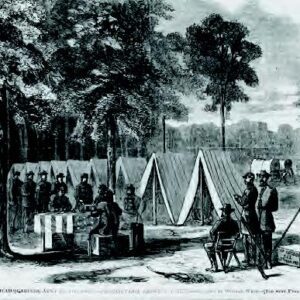March 19, 2024
“The Only Constant is Change”
Postal management’s network “modernization” plan, mostly driven by changing communications and advancing technology, is underway. Members are legitimately concerned about its impact on jobs and service.
You deserve honest and fact-based assessments and perspectives from your national union leaders. Whether positive or negative, operational changes are not new.
For generations, much of the mail was manually sorted on trains. By the early 1970s the Railway Mail Service ended, and distribution moved to fixed buildings.
The advent of mechanization introduced the Letter Sorter Machines (LSMs) where operators keyed one letter every second. Crews of 17 clerks replaced twice as many manual sorters. There were around 100,000 LSM clerks. LSMs were eventually replaced with bar code and optical character reader (OCR) machines. Today, two Delivery Bar Code Sorter (DBCS) operators can sort more mail in an hour than the entire LSM crew.
In the 1990s, tens of thousands of clerks worked in over 50 Remote Encoding Centers (RECs) typing in information when OCRs were unable to read the addresses. With advancing technologies, only one REC is now needed.
Rapidly advancing technology has become part of our daily lives – from computers, smart phones, and online shopping, to emailing, texting, and electronic bill paying. Massive amounts of information (and misinformation) are just a click away.
While we marvel at this technological revolution, we should recognize that it deeply affects the Postal Service and our jobs.
The internet has drastically reduced mail volume, especially First-Class mail, historically the main driver of postal revenues. At its 2001 peak, First-Class letter volume was 103 billion pieces. Last year, the USPS delivered 46 billion First-Class letters. Even if we are successful in our ongoing efforts to restore “overnight” July 2012 Service Standards, letter volume will continue to decline (hence the need for expanded postal services.) Few letters now have stamps, negatively impacting retail services. In the last 20 years, the average daily delivery per address has dropped from six pieces to less than three, while e-commerce has caused a welcome increase in packages.
The reality is that changes in the mail mix, from fewer letters and flats, to more packages, result in changes to the workforce, machinery, transportation, and buildings.
We cannot stop the march of changing technology. Those who claim otherwise are doing you a disservice. How to make technology work for workers such as winning a shorter work week is a long-run challenge.
Management has the right to build new buildings and deploy new equipment, but they do not have the right to delay the mail.
Management also has the right to move employees to where they need them, but not in violation of our union contract.
Through it all, we will keep our “eyes on the prize” – a vibrant public Postal Service for generations to come, with good union jobs and job security. From the local level to national leadership, the APWU will continue to unite with the people against any parts of “modernization” plans that degrade service. We will continue to enforce the contract when it comes to moving and excessing employees. We will stand firm in upcoming negotiations to protect our career job security protections – the no lay-off clause and the 50-mile limit on excessing. We will wage the vital fight for new and expanded postal services. We will continue to share updated information with the members.
Postal workers have faced generations of changes in technology, methods of communications, and far too much mismanagement. But here we stand, union strong! Yes, the seas may be stormy. By linking arms with each other, building unity with labor and community allies, and forthrightly facing the winds of change, the sturdy ship APWU, built over generations of struggle, will chart the path to safe harbor and a bright future for postal workers and the postal public.



